You may have heard the terms welder and electrician used interchangeably, but they actually refer to two very different professions. So what sets them apart?
Welders specialize in joining materials together using various welding techniques, such as arc welding and gas metal arc welding. This can involve working with metals like steel and aluminum, as well as plastic and other materials. Welders usually work in construction or manufacturing industries, where they play a crucial role in building structures and equipment.
Welders and electricians are both in high-demand occupations, but what is the difference between them? Both welders and electricians work with metal, but welders use a welding torch to melt the metal and join it together, while electricians use electricity to heat up metal until it melts. Welders often work in factories or construction sites, while electricians may work in homes or businesses.
What Is An Electrician?
They ensure that electrical work meets code and operates safely. Electricians typically specialize in either construction or maintenance.
What Is A Welder?
Welders may also cut metal using similar techniques. They often specialize in a specific type of welding, such as gas metal arc welding or flux-cored arc welding.
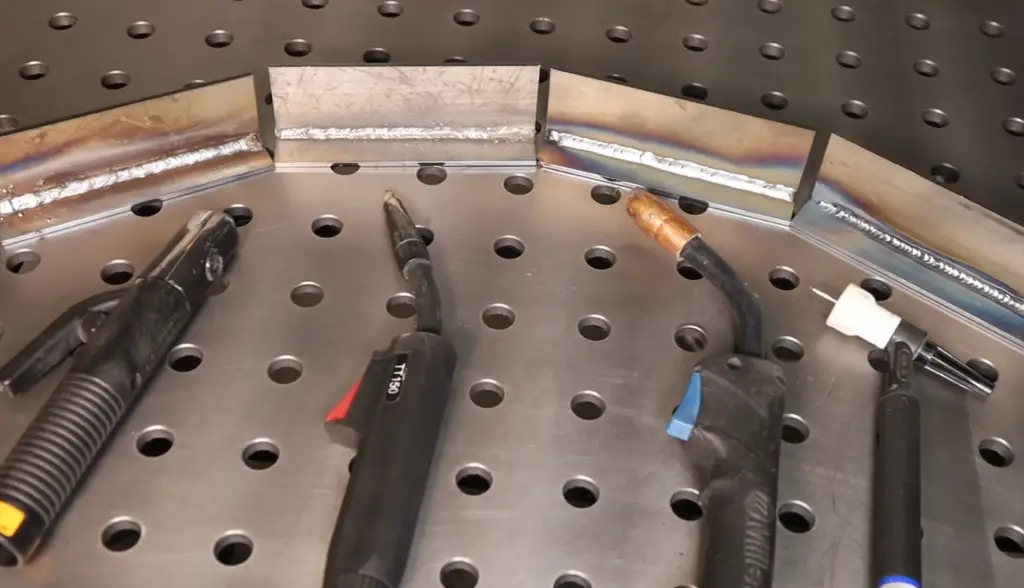
Types Of Welders/Welding
Gas Metal Arc Welding (GMAW/MIG)
This type of welding uses a wire connected to an electrode current to join metals together. It is commonly used in industrial settings and on thicker materials such as steel or aluminum.
Shielded Metal Arc Welding (SMAW)
Also known as stick welding, this type of welding uses a consumable electrode covered in flux to join metals together. It can be used on thinner materials and in harder-to-reach places.
Flux Core Arc Welding (FCAW)
Similar to MIG welding, FCAW uses a wire connected to an electrode current but also has a tube of flux in the center of the wire. It is often used outdoors because it does not require a separate shielding gas.
Gas Tungsten Arc Welding (GTAW/TIG)
This type of welding uses a non-consumable tungsten electrode to join metals together and is commonly used for precise and delicate work, such as in the aerospace industry. It can be used on almost any metal.
Types Of Electricians
- Domestic Installer – installs and maintains wiring and equipment in residential buildings;
- Industrial Electrician – works in industrial settings, such as factories or power plants, installing and maintaining electrical systems;
- Maintenance Electrician – maintains existing electrical systems and equipment;
- Construction Electrician – installs electrical systems in new construction projects;

Electrician Vs. Welder
Work Environment
While electricians typically work indoors in offices, factories, and homes, welders often work outdoors on construction sites or in industrial settings. Welders may work in a variety of industries such as construction, manufacturing, or automotive repair. They may work outdoors at construction sites or indoors in factories or workshops. Electricians typically work in the construction industry, but may also find employment in the maintenance departments of hospitals or large businesses.
Training and Education
Electricians usually have to complete a formal apprenticeship program lasting 4-5 years before obtaining their license. Welders, on the other hand, can become certified through short-term programs or on-the-job training.
While both careers require a high school diploma or equivalent, welders typically receive their training through vocational schools, apprenticeships, or on-the-job training programs. Electricians often attend formal apprenticeship programs that combine classroom instruction with on-the-job training. They may also need to become licensed in some states.
Day-to-day Tasks
Electricians primarily focus on installing and repairing electrical systems and wiring. Welders, however, specialize in joining metals together using heat or pressure. Also, electricians often work with a variety of materials, while welders typically stick to metal.
Licensure And Certification
Both welders and electricians are required to have certifications in order to work in their respective fields. However, the type of certification and licensure that is necessary for each profession differs.

For welders, there are various types of certifications available, depending on the type of welding processes they will be using. These include Gas Tungsten Arc Welding (GTAW), Shielded Metal Arc Welding (SMAW), and Gas Metal Arc Welding (GMAW). Each certification requires passing a performance test to demonstrate competency in the specific welding process.
Specializations
One key difference between welders and electricians is their area of specialization. Welders primarily join metal components together using various welding techniques, while electricians focus on installing and maintaining electrical systems.
Additionally, welders often receive specialized training in the safe use of equipment such as welding torches and power tools, while electricians receive training in electrical codes and safety regulations.
Salary
One major difference between welders and electricians is their salary.
Job Outlook
When it comes to job outlook, welders may have better opportunities. The Bureau of Labor Statistics reports that employment for welders is projected to grow 6% from 2019-2029, while the growth rate for electricians is only expected to be 5%.
Pay Scales & Industry Outlook
While both welders and electricians are in high demand, with an expected growth rate of 6% for electricians and 4% for welders through 2026, welders tend to make slightly higher salaries. According to the Bureau of Labor Statistics, the average annual salary for a welder is $41,380, while the average annual salary for an electrician is $56,180.
Tools And Equipment
One of the biggest differences between welders and electricians is the tools and equipment they use on the job. Welders often use torches or other high-heat tools to join metal pieces together, while electricians typically utilize wire strippers, screwdrivers, and pliers to install and repair electrical systems.
Location
While both welders and electricians work in construction and manufacturing, a welder typically works in an industrial setting, such as a factory or shipyard. Electricians, on the other hand, may work in a variety of settings including residential or commercial buildings.

How Do Welders Spend Their Day?
Welders primarily spend their time using tools and equipment to join metal parts together. This can be through the use of heat, pressure, or filler material. They work on various projects such as constructing buildings and bridges, repairing manufacturing equipment, and creating art pieces.
How Do Electricians Spend Their Day?
Electricians typically focus on installing, maintaining, and repairing electrical systems in homes and businesses. This includes wiring, circuit breakers, lighting fixtures, and other components. They also often work with telecommunications systems and security systems.
How To Become A Welder
Enroll In A College Course Or Vocational School
A welder typically goes through training and certification at a college or vocational school. This training covers various welding methods, safety procedures, and blueprint reading.
Become An Apprentice Welder
After completing a welding program, many welders choose to become apprentices under an experienced professional. This allows them to gain on-the-job training and further hone their skills before becoming a certified welder.
Gain Experience Through On-The-Job Training
After completing formal education, many welders gain additional experience by working under the supervision of an experienced welder for a certain period of time.
Obtain Certification And Licensing
Some employers may require welders to obtain certification in specialized areas of welding, such as underwater or orbital welding. In some states, welders may also need to obtain a license in order to work on certain projects.
There are various certifications that welders can obtain, such as the American Welding Society’s Certified Welder program or the National Center for Construction Education and Research welding certification. Some states may also require welders to obtain licenses in order to work legally.
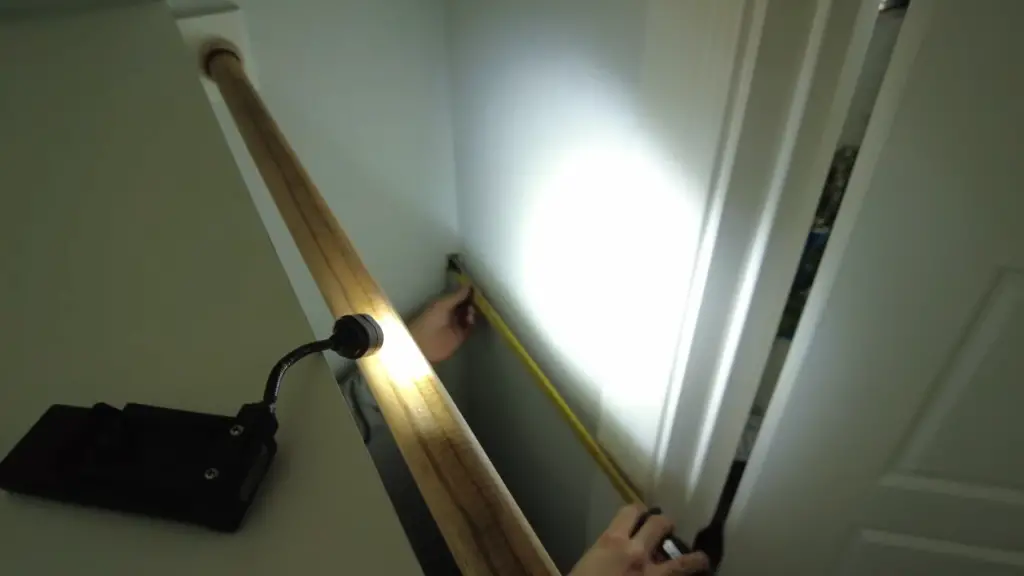
How To Become An Electrician
Enroll In A Domestic Installer Course
To become an electrician, one must first enroll in a domestic installer course, which is usually completed through an apprenticeship or technical school. This will provide the necessary education and training to properly install, maintain, and repair electrical systems in residential buildings.
Obtain License And Certification
In some states and countries, electricians may also be required to obtain a license and certifications in order to work professionally. This often involves passing a written exam and/or completing on-the-job hours under the supervision of a licensed professional.
Apprentice Electrician
Those who enroll in an apprenticeship program will work under the guidance of a licensed electrician while also attending technical classes. This combination of on-the-job training and classroom education can take up to four years to complete.
Journeyman Electrician
Once the necessary education and training are completed, one can become a journeyman electrician. This means they have the skills and knowledge to work independently on electrical systems. Some journeymen may choose to continue their education and training to become master electrician, which allows them to supervise other electricians or own their own businesses.
Qualified Electrician
This involves completing additional training and passing an exam in order to work on certain types of electrical systems, such as high-voltage equipment.

Approved Electrician
In some states and countries, electricians may also be required to become approved electrician in order to work on certain projects. This involves being a qualified electrician as well as meeting additional requirements, such as having a certain amount of years of experience or completing specific training courses.
What It Costs To Become An Electrician Vs Welder
Costs For Electrician Training
- Apprenticeship programs can range from $0 to about $1,000;
- Some technical schools or community colleges offer certificate and degree programs that can cost anywhere from $3,000 to $15,000;
- In addition, electricians must also purchase tools and equipment, which can cost thousands of dollars;
Costs For Welder Training
- Welding certificate programs at technical schools or community colleges can cost around $2,500-$10,000;
- Apprenticeships for welders are typically free;
- Like electricians, welders also need to purchase their own tools and equipment which can range from a few hundred dollars to several thousand dollars;
What Is Harder – An Electrician Or Welder?
When it comes to determining which profession is harder, it truly depends on the individual and their strengths and weaknesses. Both electricians and welders require a high level of skill, attention to detail, and physical stamina.
However, an electrician must have a thorough understanding of electrical codes and be able to work with complicated wiring systems, while a welder must have strong hand-eye coordination and the ability to work with extreme heat.
Tips For Choosing Between Being An Electrician Or A Welder
- Education and training requirements. Electricians typically receive their training through a combination of classroom instruction and on-the-job experience, while welders usually attend a technical school or apprenticeship program;
- Job duties. While electricians install and maintain the wiring and electrical systems, welders join and repair metal structures and equipment;
- Salary potential. According to the Bureau of Labor Statistics, the median salary for electricians in 2018 was $56,180, while welders earned a median salary of $41,380;
- Career growth. The job outlook for both professions is projected to grow at a rate of 9% over the next decade;
- Personal interests and skills. Are you more interested in using hand and power tools or working with electricity? Do you prefer physically demanding work or problem-solving tasks? Consider your strengths and interests when making a decision between these two careers;
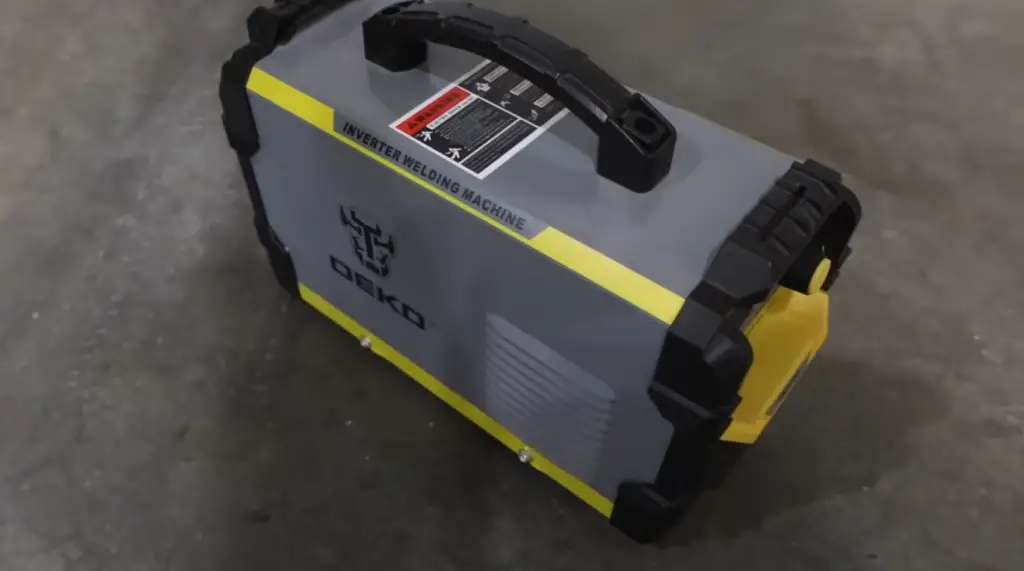
Overall, both electricians and welders are essential in maintaining the infrastructure of our society. It’s important to carefully consider the differences between these occupations before making a decision on which path to pursue. Ultimately, choosing either career can lead to a fulfilling and stable job in the skilled trades industry.
FAQ
How much does a welder make?
According to the Bureau of Labor Statistics, the average salary for welders in 2019 was $42,490 per year.
What does an electrician do?
An electrician installs, maintains, and repairs electrical systems and equipment. This may include wiring in buildings, installing lighting fixtures, and troubleshooting equipment malfunctions.
What is the difference between welding and soldering?
Welding involves using extreme heat to melt and join metal pieces together, while soldering uses a lower temperature to join metallic surfaces with a filler material.
Can electricians weld?
Some electricians may also have training in welding and be able to perform those tasks as well. However, it is not a requirement for all electricians. It is more common for welders to have training in electrical work, as they often need to understand how to safely operate and connect welding equipment.
Can a welder become an electrician?
Yes, with the proper education and training, a welder can become an electrician. They may also need to obtain licensure and certification in the field. However, it is not necessarily common for welders to make this career shift, as the job duties and skills required are quite different. It would likely be easier for an electrician to learn welding skills if necessary for their job.
Do you have to be smart to be a welder?
No, intelligence is not necessarily a determining factor in one’s ability to weld. However, being able to understand and follow technical instructions, perform precise measurements, and troubleshoot problems are important skills for a successful career as a welder.
On the other hand, electricians do typically require a higher level of education and training. They must have extensive knowledge of wiring systems, electrical codes, and safety procedures. Electricians often work with high-voltage electricity and handle complex tasks such as installing and maintaining electrical infrastructure.
Is welding a skill or trade?
Some may argue that welding is both a skill and a trade. To become a skilled welder, one must undergo extensive training and practice in order to master the art of joining materials together using heat or pressure. However, becoming a certified welder also requires completing an apprenticeship program or receiving on-the-job training from experienced welders.
So how does welding differ from being an electrician? While both trades require technical expertise and safety precautions, the main difference lies in the type of work they perform. Electricians typically deal with installing, maintaining, and repairing electrical systems and components. On the other hand, welders primarily focus on joining metals together through various techniques such as gas metal arc welding (GMAW), shielded metal arc welding (SMAW), and gas tungsten arc welding (GTAW).
Additionally, electricians often work with live wires while welders typically do not. As a result, electricians must undergo even more extensive training in order to properly handle electrical hazards.
It is also worth noting that some individuals may be trained in both professions and are able to perform the tasks of both an electrician and a welder. Whether you decide to pursue one trade or both, it is crucial to always prioritize safety and continue honing your skills in order to become a valuable asset in your chosen field.
Can welders make 300k a year?
While welders can certainly earn a high salary, it ultimately depends on their level of experience and the specific industry they work in. According to Glassdoor, the national average salary for welders is about $45,000 per year. However, some industries, such as the oil and gas industry, may offer higher salaries with experienced welders making upwards of $300,000 per year.
On the other hand, electricians also have the potential to earn a high salary. The national average salary for an electrician is around $56,000 per year according to Glassdoor. Again, this can vary depending on experience and industry. For example, industrial electricians in the utility industry can make upwards of $75,000 per year.
So while welders and electricians can both earn high salaries, it ultimately depends on their level of experience and the industry they work in. It is important to note that both careers require extensive training and education in order to be successful and earn a higher salary.
How much do electricians make?
According to the Bureau of Labor Statistics, the median annual salary for electricians in 2018 was $55,190. This means that half of all electricians earned more than this amount, and half earned less.
Electricians typically work with installing and maintaining electrical systems in residential and commercial buildings. They may also specialize in specific areas such as telecommunications or renewable energy.
Does welding require math?
When it comes to their day-to-day job duties, welders and electricians may seem quite similar – both work with tools, electricity, and metal. However, the two professions differ in their specific specialties and training requirements.
One key difference is that welders often use math skills, such as geometry and algebra, for measurements and calculations. Electricians may also use basic math in their work, but it is not a crucial part of the job like it is for welders.
Another distinction is the type of equipment each profession uses.
The materials they work with also vary – welders join or cut metal pieces, while electricians install and maintain wiring.
Additionally, welders typically receive their training through technical schools or apprenticeships, while electricians often go through a formal education program and complete on-the-job training.
Is 35 too old to start welding?
While age is not necessarily a determining factor in success as a welder, it is important to consider the physical demands of the job. Welding often requires repetitive movements, heavy lifting, and working in uncomfortable positions for extended periods of time. It may be more difficult for someone over 35 to handle these physical demands on a daily basis, but with proper training and adherence to safety precautions, age should not prevent one from pursuing a career in welding.
It is also important to note that while welders and electricians both work with equipment that produces heat and electricity, their tasks and responsibilities differ significantly. Electricians primarily install and maintain electrical systems and wiring, while welders join or cut metal pieces using heat or pressure. Both occupations require specialized training and certification.
How many hours do welders work?
Welders typically work full-time, with overtime being common in some industries. The actual number of hours worked can vary depending on the job and industry.
Is learning to be an electrician hard?
While both welders and electricians work with electricity and use tools to construct or repair structures, there are some key differences in their job duties and training requirements.
Electricians primarily focus on installing, maintaining, and repairing electrical systems for buildings and equipment. This often includes wiring, circuit breakers, transformers, and other components related to power distribution. Electricians also may install telecommunications and networking systems.
On the other hand, welders join or cut metal parts using heat sources (such as a welding torch) and filler materials such as wire or rods. They often work on construction projects including bridges, buildings, and vehicles. Welding can involve a variety of techniques including gas metal arc welding (MIG), flux-cored arc welding (FCAW), and gas tungsten arc welding (TIG).
In terms of education and training, electricians typically attend a technical or trade school and may need to obtain licensing in their state. Welders often learn through apprenticeships or on-the-job training, though some may pursue formal education as well.
At what age do welders retire?
There is no set age for welders to retire, as it depends on individual factors such as physical ability and career satisfaction. However, the average retirement age for all occupations in the United States is around 62 years old.
Can welders work alone?
While some welders may work alone on smaller projects, most welding jobs require more than one person. This is because welding often involves lifting and manipulating large pieces of metal, as well as operating potentially dangerous equipment. It is important for welders to have a team to assist with these tasks and ensure safety on the job.
On the other hand, electricians are able to work alone more often because their work typically involves smaller tools and less manual labor. However, they too may work in teams for larger projects or for added safety precautions.
Do welders get COPD?
There is a higher risk of developing the chronic obstructive pulmonary disease (COPD) for welders due to the high levels of fumes and particles inhaled during welding processes. However, it is not a guarantee that all welders will develop COPD. Proper protective equipment and following safety guidelines can help minimize this risk.
On the other hand, electricians are not commonly at risk for developing COPD as they typically do not work with fumes or particles in the same way as welders do.
Overall, both welders and electricians should take appropriate safety measures to protect their health while on the job. This includes wearing proper protective equipment and regularly maintaining equipment to ensure safe working conditions.
What is the easiest form of welding to learn?
Many welders would argue that the MIG (Metal Inert Gas) welding process is the easiest form of welding to learn. MIG uses a wire feeding machine, which automatically feeds a filler metal into the weld joint. This makes it easier for beginner welders to maintain a consistent arc and proper technique. However, each type of welding has its own set of challenges and requires skill and practice to master.
In terms of job duties, welders primarily join or cut metal using various welding techniques, while electricians install and maintain electrical systems. Both professions require technical expertise and involve working with potentially dangerous equipment. However, electricians often work on smaller-scale projects and may use tools such as screwdrivers and drills, while welders often work on larger-scale projects and use equipment such as welding torches.
Do welders work 7 days a week?
While welders may work long hours and overtime, they do not typically work 7 days a week. Electricians, on the other hand, may be required to work weekends or be on call for emergency repairs.
What type of education is necessary for each job?
A welder generally only needs a high school diploma or equivalent along with vocational training or an apprenticeship program. An electrician typically needs to complete a formal apprenticeship program and pass licensing exams.
Useful Video: 4 Types of Welding Explained: MIG vs TIG vs Stick vs Flux Core
References
- https://work.chron.com/welders-vs-electricians-8393.html
- https://www.indeed.com/career-advice/finding-a-job/electrician-vs-welder
- https://generalcontractorlicenseguide.com/electrician-vs-welder/
- https://workveteran.com/welder-or-electrician/
- https://climbtheladder.com/electrician-vs-welder/
- https://1stelectricians.co.uk/blog/welder-vs-electrician/
- https://fixitmanblog.com/welding-vs-electrician/
- https://1stelectricians.co.uk/blog/welder-vs-electrician/
- https://fixitmanblog.com/welding-vs-electrician/


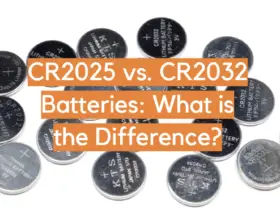


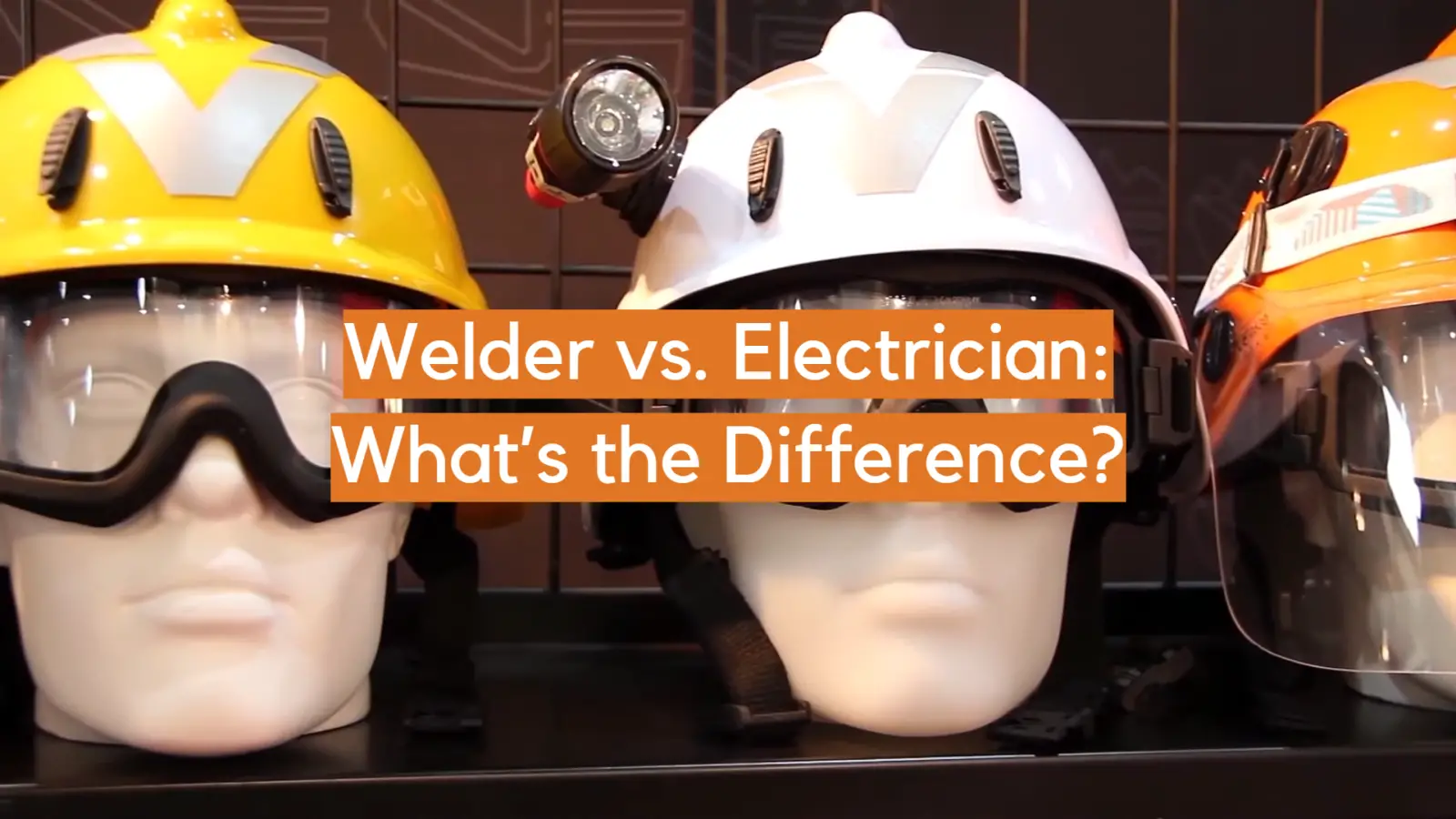





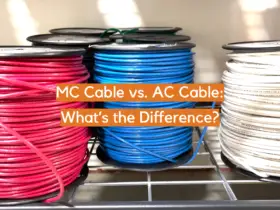


Leave a Reply